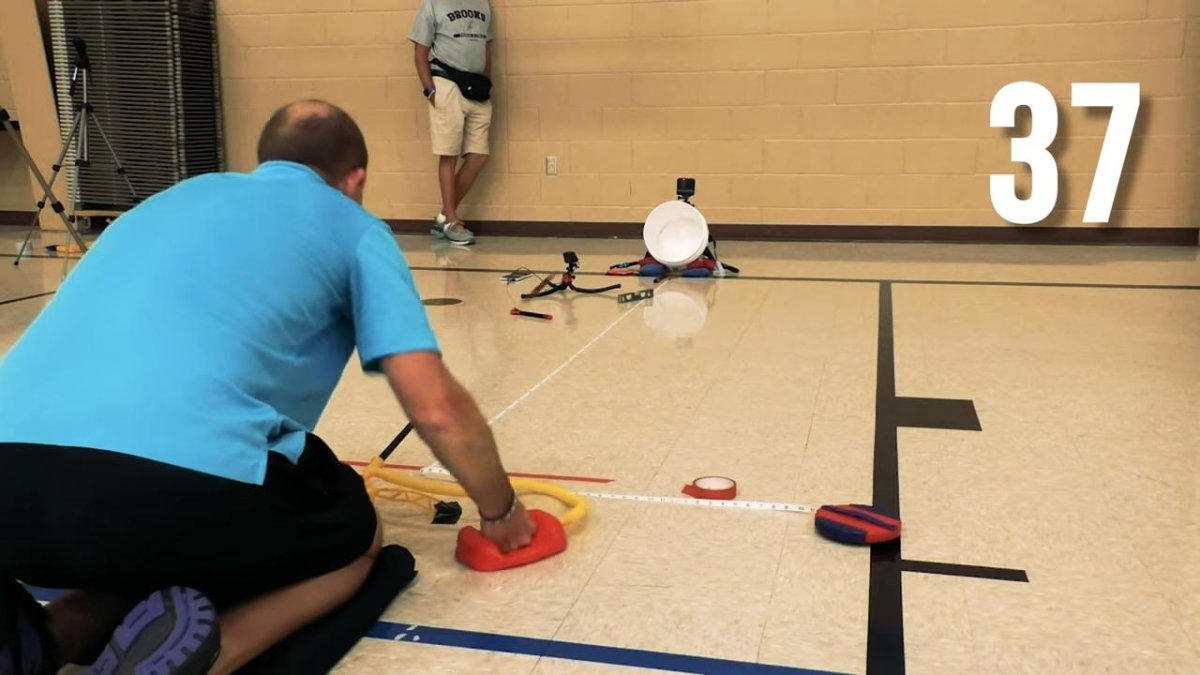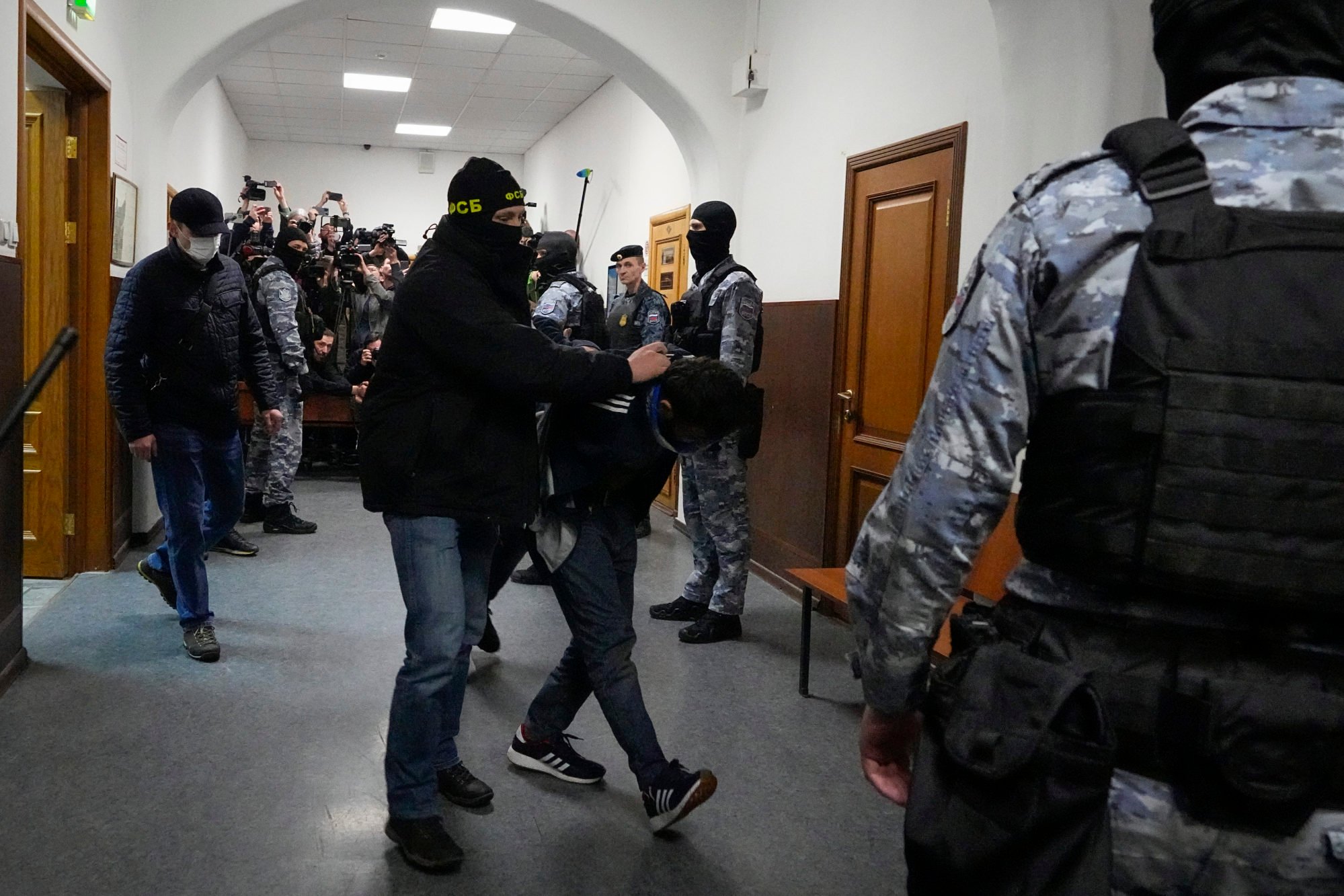
Putin’s first years as president saw militants storm a Moscow theatre, taking more than 900 people hostage, and the Beslan school siege – in which more than 300 people, mostly children, were killed.
After that, he chipped away at civil liberties and launched an escalating crackdown against his opponents, which he justified by the need to stamp out the terrorist threat.
Islamic State posts video of gunmen carrying out Moscow concert hall attack
Islamic State posts video of gunmen carrying out Moscow concert hall attack
“For decades we have been told that the curtailment of our rights is necessary for security,” Zhdanov said in a post on Telegram over the weekend.
“But the terrorist attacks do not stop, and the FSB is busy with everything except its direct responsibilities – killing their political opponents, spying on citizens and prosecuting people who are against the war.”
It is already the deadliest attack in Europe to have been claimed by IS, and Russia says it expects the death toll to rise further.
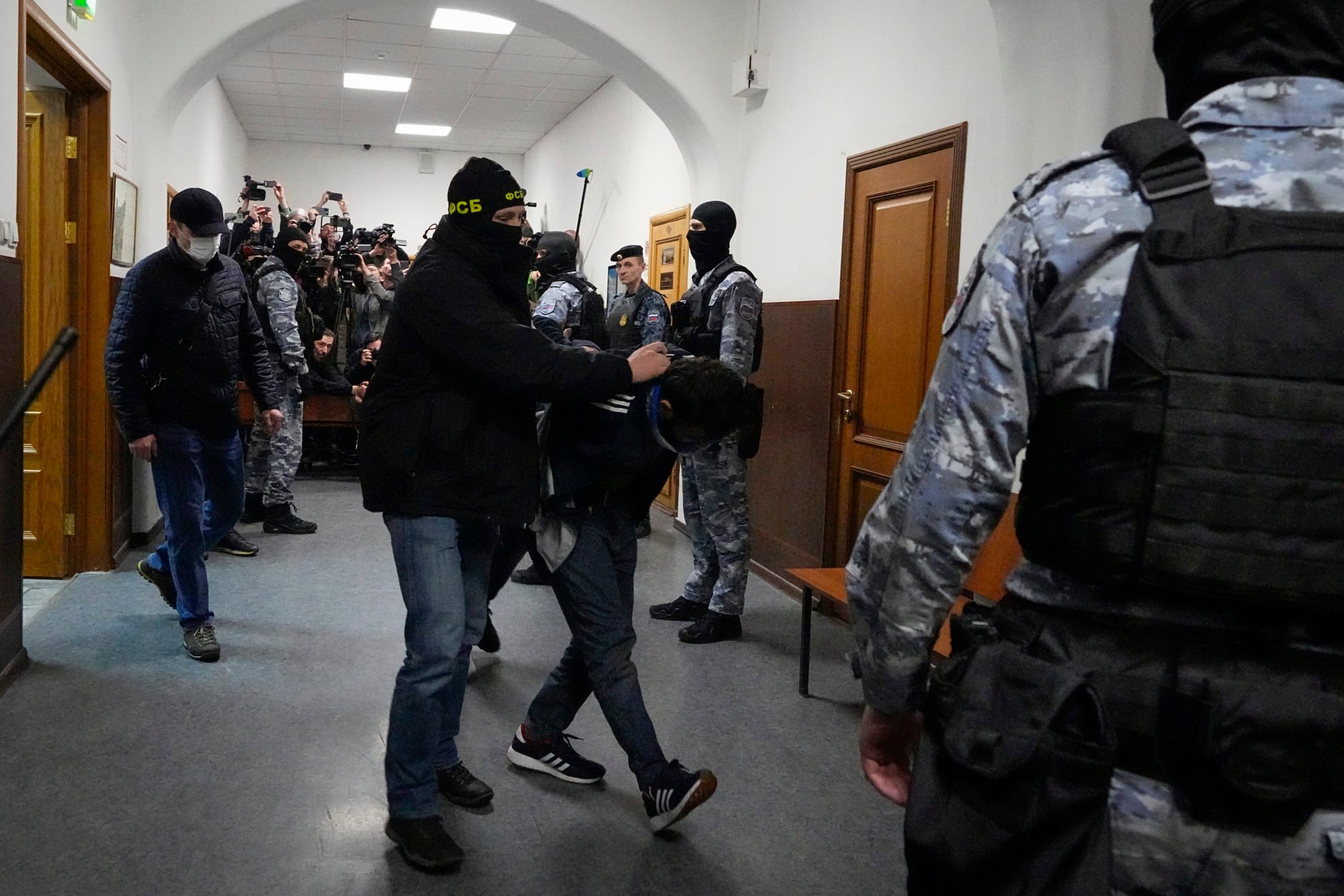
On March 7, the US embassy in Moscow said it was “monitoring reports that extremists have imminent plans to target large gatherings in Moscow, to include concerts”.
Speaking to FSB chiefs last Tuesday – just three days before the Crocus City Hall attack – Putin called the statement “provocative” and “outright blackmail … to intimidate and destabilise our society”.
Chinese students share harrowing accounts of ‘chaotic’ Moscow shooting
Chinese students share harrowing accounts of ‘chaotic’ Moscow shooting
In the wake of Friday’s shooting, Putin’s critics said his campaign to transform Russia’s security services into agencies designed to spy and harass them had left Russia vulnerable to real attacks.
“They are incapable of doing anything useful – they just protect the criminal regime from its citizens, and not the citizens from criminals,” said Dmitry Gudkov, a former lawmaker and now opposition figure.
In a post on social media, exiled former oil tycoon Mikhail Khodorkovsky – who spent 10 years in a Russian prison before being released in 2013 – said the attack showed the “impotence” of the Kremlin’s security apparatus.
Putin has always promoted the country’s intelligence and security services as elite operators.
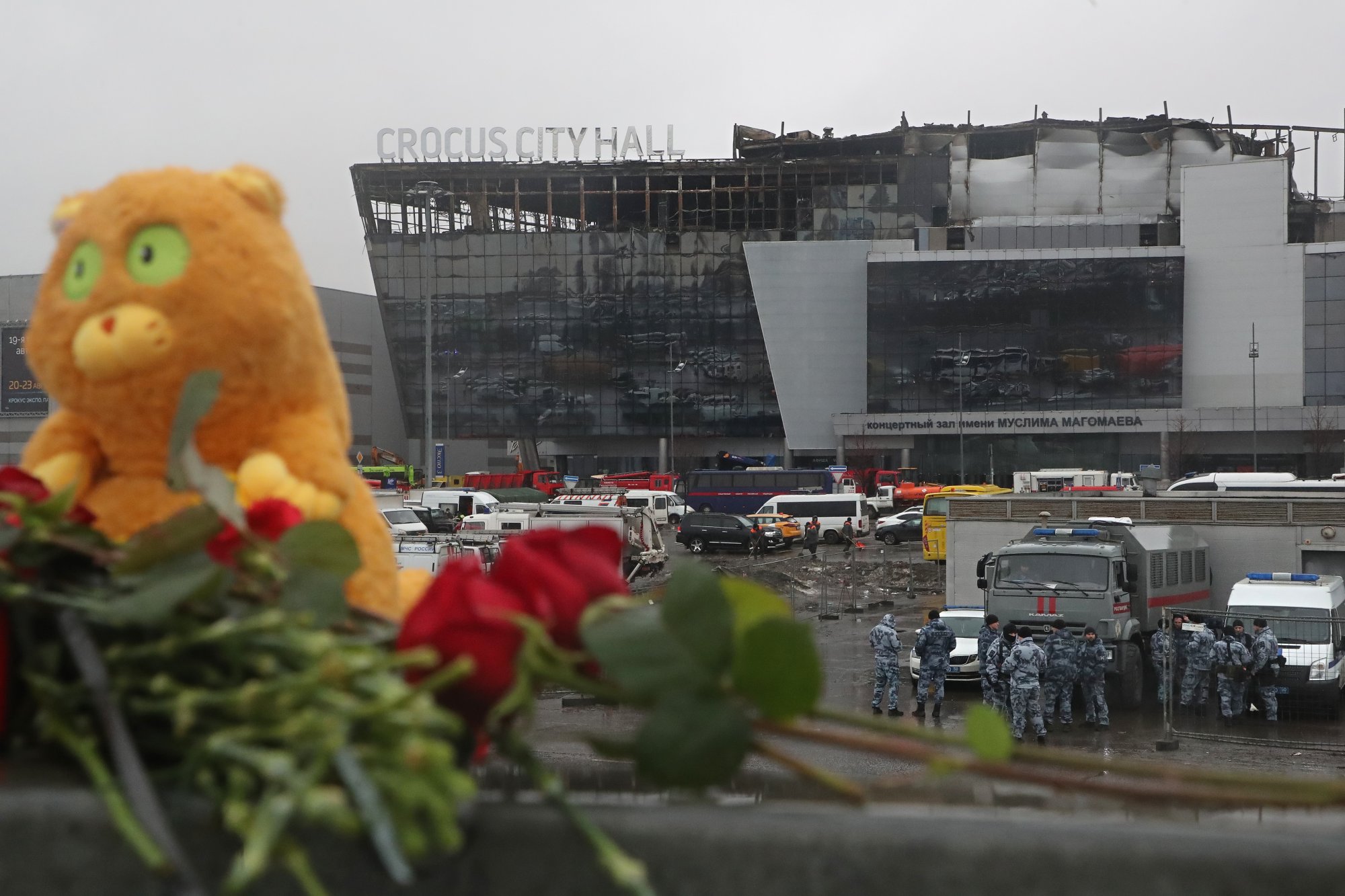
A record 143 terror-related criminal cases were opened last year, according to the independent Mediazona news site. Between 2012-2017 there were fewer than 20 a year.
The FSB has also been linked to a spate of poisonings. They include targeting Kremlin critics such as Navalny and Vladimir Kara-Murza at home, and former spies such as Sergei Skripal and Alexander Litvinenko abroad.
Authorities have opened 141 criminal cases against Navalny’s associates in the past five years, his former chief of staff Leonid Volkov said on Saturday in a post on Telegram.
“It certainly can’t surprise anyone then, that the FSB can’t do the only job it really should be doing: preventing a real, nightmarish terrorist attack.”
Moscow concert hall attack shakes Russian capital, sows doubts about security
Moscow concert hall attack shakes Russian capital, sows doubts about security
On Sunday, Russia lowered flags to half-mast after Putin declared a national day of mourning.
More than 100 people remained hospitalised following the attack, some of them in a serious condition. Video footage showed a sombre-looking Putin lighting a candle at a church outside Moscow to honour those who died.
Large crowds attended a memorial event in the darkness outside Crocus City Hall and watched as projected images of white cranes – each one representing a victim of the attack – flew into the night sky as melancholy music played.
Ukraine has denied any role in the attack.
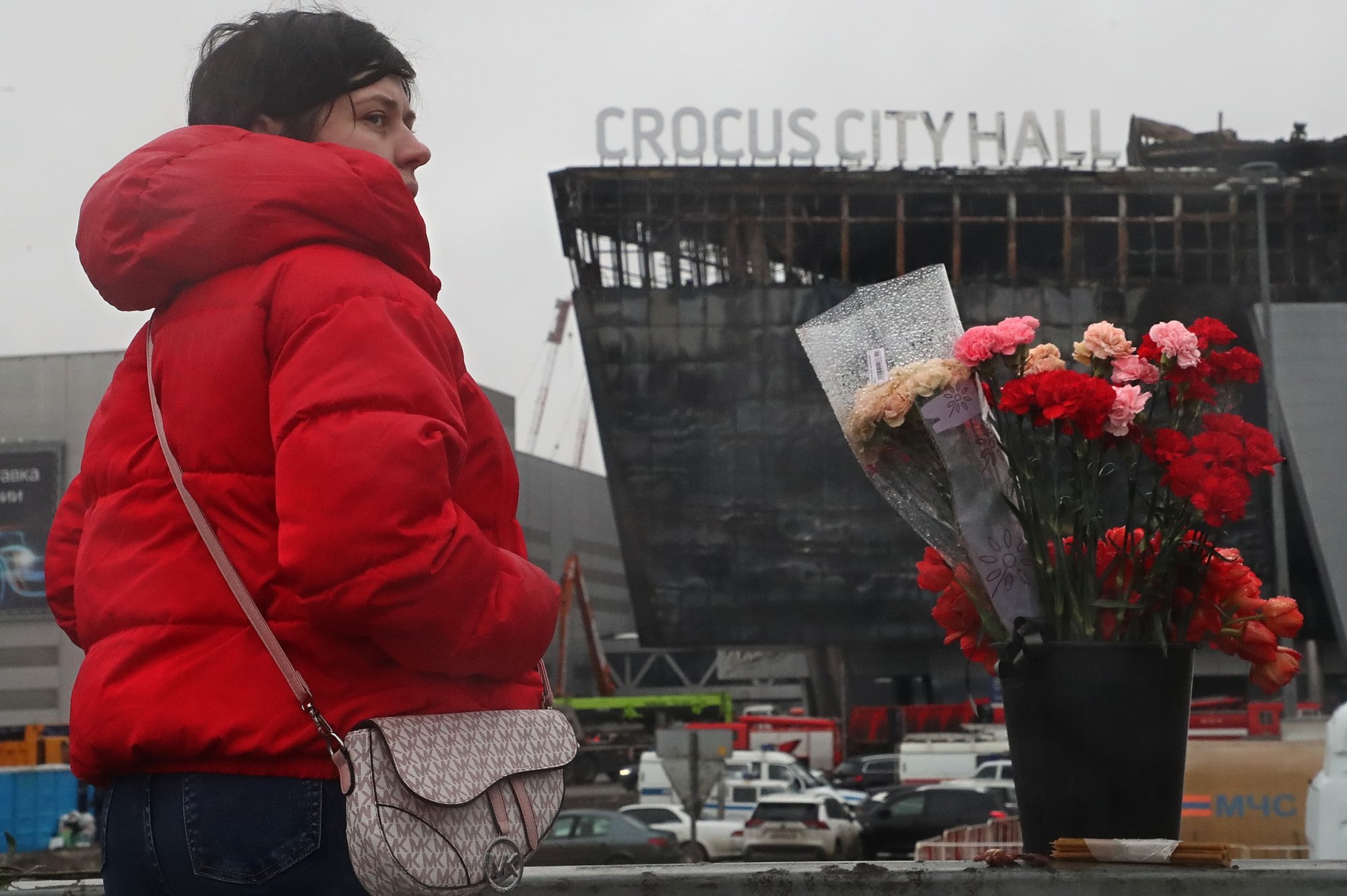
Earlier on Sunday, people laid flowers at the concert hall. Long queues formed in Moscow to donate blood as the process of identifying the dead gathered pace.
Countries around the world have expressed horror at the attack and sent their condolences to the Russian people.
Putin said 11 people had been detained, including the four suspected gunmen, who fled the hall and made their way to the Bryansk region, about 340km (210 miles) southwest of Moscow.
Blindfolded and with their hands cuffed behind their backs, the suspects were taken to the Moscow headquarters of the Investigative Committee on Sunday ahead of an expected court appearance that would remand them in pre-trial detention.
Moscow attack: Putin vows retribution for ‘barbaric terrorist act’
Moscow attack: Putin vows retribution for ‘barbaric terrorist act’
IS, the Islamist group that once sought control over swathes of Iraq and Syria, on Saturday released what it said was footage of the attack on its Telegram channels.
In video footage published by Russian media and Telegram channels with close ties to the Kremlin, one of the suspects said he was offered money to carry out the attack.
“I shot people,” the suspect, his hands tied and his hair held by an interrogator, a black boot beneath his chin, said in poor and heavily accented Russian.
When asked why, he said: “For money.” The man said he had been promised half a million roubles (a little over US$5,000). One was shown answering questions through a Tajik translator.
Unverified footage posted to Russian Telegram channels appeared to show one of the suspects being tortured with electric shocks in detention. Reuters could not verify its authenticity.
Additional reporting by Reuters
EMEA Tribune is not involved in this news article, it is taken from our partners and or from the News Agencies. Copyright and Credit go to the News Agencies, email [email protected] Follow our WhatsApp verified Channel






